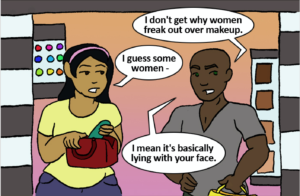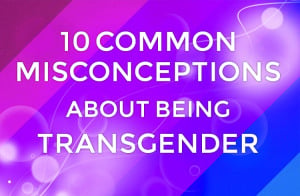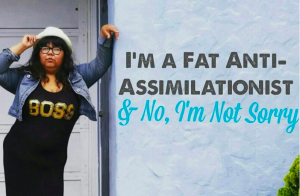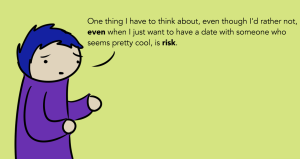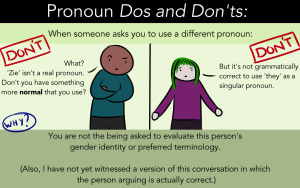(Content Warnings: Harassment, violence, suicide)
As a so-called “digital native” with a background in social media organizing and online community-building, I’ve dealt with my fair share of “trolls” – people who target others online with insults, mockery, and threats because they disagree with them.
For example, I’ve had conservative bloggers “expose” me and my work to their followers online, seen anti-choice extremists tweet terrifying things at my work accounts, and soldiered through an onslaught of harassment on Twitter from men’s rights activists, anti-feminists, and people who are just plain out there to be mean.
And I’m not alone.
A poll released last year found that 25% of US Americans had experienced online harassment – of them, 57% were women. 29% of respondents were scared for their lives. 20% were scared to leave their homes.
One of the most well-known trolling controversies is the #GamerGate “movement,” which seeks to push women out of the world of video games with threats and leaks of their personal information.
For example, media analyst Anita Sarkeesian was forced out of her home by threats against her and her family for her work on gender in video games.
Outspoken developer Brianna Wu was threatened by a YouTube user who made videos explaining how he would kill her.
Users on Ask.FM told trans game developer Rachel Bryk to kill herself, and eventually she did.
And it isn’t just women targeted by #GamerGate who face this kind of harassment. It’s women online, period.
Amanda Hess, a prominent online writer, has received rape threats and death threats from Twitter users who have violent histories and claim to know where she lives.
Jessica Valenti, founder of Feministing, isn’t sure if she would choose to do it all again using her actual name because of the threats and harassment she’s suffered since.
Lindy West, a former Jezebel contributor, was trolled by a user who created an account in her late father’s name and used it to tell her how worthless and awful she was on a daily basis.
Heather Hogan, Senior Editor of Autostraddle, received e-mails and messages from the same person across platforms mocking her appearance.
Erin Matson, a feminist organizer and writer, was trolled ruthlessly by anti-choice extremists after her daughter was born.
Speaking out online can often mean preparing for an onslaught of harassment.
So how do we deal? How should we?
I decided to find out by talking to a diverse array of feminist activists about their own strategies and experiences.
Whether you’re a seasoned digital activist or just now making a Twitter, their ideas set solid paths for what to do when harassment happens – and how to keep your head up in the process.
1. Go Public
Some feminists archive abusive social media messages on blogs, publicly reply to trolls, and retweet egregious harassment.
Anita Sarkeesian, for example, once documented the 157 hateful and threatening tweets she had received over the course of one week.
“I’ve heard from a lot of people that online harassment online isn’t really that bad,” Ponta Abadi of Sex & Privilege said. “So I love to retweet harassment I get – sometimes without any comment from me at all. Sometimes it’s important just to expose that shit.”
Writer Bailey Poland shares screenshots of abusive messages publicly for the same reason. “If it’s something especially egregious, but not actually violent or threatening,” she explained, “I’ll take a screenshot of it and post it as an example of the kinds of things men say to women.”
Publicly sharing abusive messages calls attention to the widespread harassment women face online and help folks being trolled find support and feel less alone.
“I share the particularly nasty comments on Twitter using the tag #YouTubeMisogyny to help expose the misogyny (and often racism, ableism, homophobia, and transphobia) that feminists and women on the internet experience,” vlogger Marina Watanabe told me, adding that the reactions of people who know you on social media can be comforting when you share abusive messages publicly.
Kaylee Jakubowski of Everyday Feminism echoed her: “Showing it to a supportive friend usually makes me feel less ‘crazy’ and more grounded in reality,” she told me.
Sharing harassment publicly also enables activists to tap into their network for back up – activist and community organizer Britni de la Cretaz told me she retweets abusive messages “so that my followers can have at them” – and warn them of someone who may target them next.
“If it’s a particularly gross kind of misogyny or violent BS, I might publicly shame them, as much to warn others who might encounter them as anything else,” said Mari Brighe, a queer trans writer for sites like Autostraddle and Bustle.
2. Ignore, Block, and Report
Most platforms enable users to block each other and report posts and users – and most of the folks I talked to use those tools to curtail harassment.
“I block and report trolls, online abusers, and haters without apology,” said Jamia Wilson, Executive Director of Women Action and the Media, adding that she does the same for folks attacking other people she follows as a form of bystander intervention. “I also document and save harassment to hold abusers accountable and engage law enforcement when necessary.”
Law enforcement and social media administrators alike have often failed to properly respond to women’s concerns about online harassment, but reporting users can be key, especially if they send threatening messages.
“If I receive a threat of any kind, I block the person who sent it and record all available information about them before sending a report to the website and, if appropriate, law enforcement,” Bailey told me. “While I don’t necessarily believe law enforcement is the best solution and fully understand the myriad valid reasons people have to avoid them, I have on occasion found it necessary to involve them when credible threats have been made.”
At the very least, blocking or ignoring trolls can help activists remove abuse from their inboxes and dashboards and escape the anxiety and depression it can cause.
“It took me a really long time to learn how to deal with internet hate, especially as a person who struggles with anxiety and depression,” Marina told me. “At first I thought reasoning with them would work, but I soon learned that their sole purpose was to argue and demean. So now I delete all the comments and ban the users.”
“To limit the amount of anxiety trolls give me, I barely ever reply,” Ponta revealed. “I learned the hard way that replying to trolls can lead to a spiral of anxiety and frustration.” Ponta doesn’t always block them, though, so that she can see if they’re threatening her and report them.
“I adopt a ‘take what you like and leave the rest’ attitude towards everyone,” Bevin Branlandingham, ultra rad warrior for self-acceptance, told me. “I don’t engage with people to try to convince them that fat people deserve love and happiness. I just continue to do my work in the world and when people are ready to hear what I have to say I’m in the world saying what I believe and showing people that you don’t need to lose weight or stay in the closet to live a fabulous life.” Bevin also has her friends block users when she’s had enough.
Before they block users, some folks even give themselves the last word.
“Ignoring them does not work, but neither does long term engagement,” romance novelist Racheline Maltese observed. “On social media platforms I respond with ‘Do you feel powerful now?’ and nothing else. It infuriates them until they slink off.”
“Stating your point and moving is the best thing you can do,” writer and activist Jordan told me, reflecting on a situation where she got into a Twitter argument with Perez Hilton and ultimately had to block him. “Write it out in your own words without their assholery invading or distracting your truth. Put it out there. Don’t let them take your identity and warp it into some you don’t like. Own that shit. Be whatever your truth is and own that shit unapologetically.”
“A great philosopher once said ‘Do or do not, there is no try,’” Kaylee said. “Well, he missed a part. When dealing with trolls, I often go by the ‘do, then do not’ philosophy. I’ll engage in whatever way seems fit and then stop engaging when I feel that the encounter no longer serves me.”
3. Engage and Educate
Most of the people I interviewed said they struggle to discern between folks who are genuinely misunderstanding them and trolls and bullies, which deters them from responding to anyone. Blogger Nik Shier, however, makes her best effort to turn trolling into teaching.
“I usually respond calmly, meeting them where they are, in an attempt to educate or inspire some emotional response on the topic other than hate and ignorance,” she told me.
“I handle trolls so much like we are coached to handle arguments with people we love. I use ‘I’ statements; I acknowledge multiple truths when valid; I acknowledge their humanness in a way that either forces them to acknowledge mine or makes them ashamed of themselves. Mostly, I respond with questions that make them think outside of the comment box.”
4. Laugh (So as Not to Cry)
Sometimes, trolls aren’t threatening or dangerous – they’re just plain mean. For a lot of activists, finding humor in low-blow attacks is a viable coping mechanism.
“If I feel like I’m going to get some kind of cathartic enjoyment out of responding or insulting or snarking, then I do that,” Mari said. “I realize full-well that it’s not going to discourage them, but it sometimes it makes me feel better.”
This is something I’ve started practicing on my own Twitter feed, where I respond to trolls with only Justin Bieber GIFs. No words. Just GIFs. It immediately halts hurtful dialogue – and it also lets me laugh at in the middle of it all.
This kind of engagement doesn’t even need to happen online.
“The most ridiculous tweets get screen shot and sent to my friends and boyfriend so we can laugh at them together,” EF Contributing Writer Jenika McCrayer told me. “I’m grateful to have a supportive network of people to remind me that nothing trolls say about me on the Internet is remotely true!”
“I usually laugh about trolls with my friends,” Autostraddle’s Trans Editor, Mey Rude, told me. “Seeing them acknowledge that the trolls are ridiculous comforts me and lets me laugh even more. Plus, they can point out ridiculous parts of the trolling that I might not have noticed at first.”
5. Practice Self-Care
When activists are trolled, they need to make sure they’re taking care of themselves emotionally. This means reaching out for support, unplugging, and reminding themselves why they do what they do.
“I rely on a strong network of online and offline friends and family to whom I can talk publicly and privately about my experiences,” Bailey told. “I know a lot of people who will request that their friends flood their mentions with pictures of cute baby animals during especially bad periods of trolling.”
Racheline’s advice to online activists was to remember yourself. “Never self-talk with their voices,” she told me. “And if you need a break, take a break. You’re allowed to feel things in response to this crap. “
“It’s easier said than done, but don’t take it personally,” Jenika said. “Just take it in that you are awesome and brave and that there are people out there who go out of their way to seek you out, to find a way to talk to you, and to get your attention.”
Mey echoed that sentiment. “If you have enough people noticing you to have trolls,” she said, “there must be a much, much larger number of people who are helped, moved and touched by what you’re doing.” (Mari reminds herself of this by reading fan mail.)
“What it comes down for me is priorities,” Bevin said. “Engaging with trolls means I need to do more self care and I deplete my energy. I’d rather save my self care to keep living my fabulous life and writing about it!”
***
There is no one-size-fits-all solution to trolling. We all have our own needs, and the same approach won’t work for two people or even work for the same person twice.
“Sometimes I feel equipped to take on the trolls and other days I feel exhausted and I can’t do it,” Britni said. “While I tell myself that trolls come with the territory of being an activist, I also tell myself that it’s okay to not be able to handle the haters all the time.”
“I pick and choose when to respond,” Everyday Feminism Contributing Writer Wiley Reading told me. “If I feel like arguing, I do, and when I want to stop, I stop.”
Whether you block a troll or put them on blast, what matters is that you’re doing what feels right and allows you to keep putting good work into the world. Haters gonna hate. You’ve got a world to change in the meantime.
[do_widget id=”text-101″]
Carmen Rios is a Contributing Writer for Everyday Feminism. She splits her time disparately between feminist rabble-rousing, writing, public speaking, and flower-picking. A professional feminist by day and overemotional writer by night, Carmen is currently Communications Coordinator at the Feminist Majority Foundation and the Feminism and Community Editor at Autostraddle. You can follow her on Twitter @carmenriosss and Tumblr to learn more about her feelings.
Search our 3000+ articles!
Read our articles about:
Our online racial justice training
Used by hundreds of universities, non-profits, and businesses.
Click to learn more






